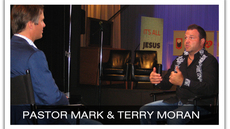"My soul magnifies the Lord, and my spirit rejoices in God my Savior."
— Mary worshiping God in Luke 1:46–47
Each May it seems curious to me that many Protestant Christians do not focus on Jesus' mother, Mary, in conjunction with the celebration of Mother's Day. This may be, in part, an overreaction to the improper emphasis upon and false teachings about Mary among many Catholic and Orthodox Christians.
The Mythical Mary
In the second century, Irenaeus depicted Mary as a "second Eve," laying a foundation upon which later theologians would build an unbiblical view of Mary, including Cardinal Newman who rediscovered the image in the nineteenth century. Also, in the second century, the baptismal creed began referring to Jesus as "Born of the Holy Spirit and the Virgin Mary." By the fourth century, some churches were being dedicated to Mary. In the fifth century, the Council of Ephesus declared Mary the "mother of God," which further encouraged devotion to Mary. In the eighth century, Germanus of Constantinople said that Mary dispenses grace to the church on earth, and also taught, along with others, that Mary was Mediatrix, meaning that she participated in saving people along with Jesus.
In the twelfth century, Bernard of Clairvaux helped to popularize the idea that Mary dispenses grace to Christians, and the "Hail Mary" prayer was introduced and combined with the Rosary. In the fourteenth century, the title Coredemptrix first appeared in Catholic literature, speaking of Mary as participating with Jesus in our redemption (this concept continued gaining popularity and in more recent times the late Pope John Paul II spoke of it on multiple occasions).
In the fifteenth century, Pope Sixtus IV spoke of the spiritual motherhood of Mary over all Christians and the "Hail Mary" prayer was changed to its current form. In the nineteenth and twentieth centuries, shrines dedicated to Mary appeared in places such as Lourdes, France, and Fatima, Portugal. In the twentieth century, Pope Pius XII declared that Mary ascended into heaven like Jesus, called for the memorial of Mary’s role as queen dispensing grace to Christians, and said that she was so united with Jesus that she was involved in his suffering and our salvation. The Catholic Church also held a congress on Mary and sponsored pilgrimages to some of the shrines dedicated to Mary.
Having been raised as a Catholic, I did pray to Mary as a young boy. Once I met Jesus at the age of nineteen, though, I was convicted that I had sinned against God by praying to anyone but him. In some ways I then overreacted for a few years and did not esteem Mary as I should have. Sadly, it seems that many Christians are also prone to the extremes of either esteeming Mary too much or esteeming her too little.
The Scriptural Mary
The key to undoing all of the false teaching surrounding Mary is, of course, to simply look at what Scripture does say about her and add nothing to that. Mary appears by name in three of the four gospels (the Gospel of John refers to "Jesus’ mother") and the book of Acts. She was a young virgin girl, perhaps even a young teenager, in fulfillment of the prophecy of Isaiah 7:14.
Scripture gives scant insights into the early life of Mary. She grew up in Nazareth and was betrothed to be married to a carpenter named Joseph. During her engagement, the angel Gabriel appeared to her to declare that she would give birth to Jesus by a miracle of God the Holy Spirit (Luke 1:35). Following this announcement she traveled some one hundred miles to visit her cousin Elizabeth, who was from the family line of Aaron (Luke 1:36). Upon entering Elizabeth’s home, she broke into a hymn of thanks to God (Luke 1:46–56), which has come to be known as the Magnificat. Mary later returned home and her fiancé, Joseph, was intending to end their relationship because he believed she had been sexually unfaithful to him. But God intervened and told Joseph in a dream all that he was doing (Matt. 1:18–25). Some months later the couple was required to travel about eighty or ninety miles to Bethlehem to register for a government census. Mary’s son was born there in humble circumstances, in fulfillment of Micah 5:2 (Luke 2:6–7). He was named Jesus in accordance with an angel’s requirement (Matt. 1:21).
The family would later flee to Egypt to save the life of young Jesus and then they returned to Nazareth. Around perhaps the age of twelve, Jesus went to Jerusalem and was noted by the teachers for his theological insights (Luke 2:41–52). Jesus performed his first miracle at the request of Mary at a wedding in Cana (John 2:1–11). Mary is scarcely mentioned again in the gospels until she appears at the crucifixion of Jesus, where he spoke to her lovingly just before his death (John 19:26–27). Following Jesus’ death, Mary then appears with the group of 120 early Christians who gathered in the Upper Room (Acts 1:12–26). She does not appear in Scripture again and her death is not mentioned in Scripture.
Mary As an Example
Mary was simply a very godly young woman who loved the Lord and trusted in him despite great risk to her own reputation. She repeatedly appears as a devout woman who loved God and was a loving mother to Jesus. Contrary to some aberrant teaching, she did not remain a virgin, but mothered other sons such as James and Jude, who visited Jesus with Mary during his ministry (Matt. 12:46; Mark 3:31–35; Luke 8:19–21) and later became pastors who penned books of the New Testament bearing their names.
Therefore, the Mary of Scripture greatly differs from the Mary of myth, legend, and folklore. The real Mary is a wonderful example for young women to love God and retain their virginity until marriage as a demonstration of their love for God. The real Mary is a wonderful example for mothers as a godly woman who is best known for the sons she raised, whom God used to change the world, thereby elevating the ministry of Christian motherhood. The real Mary is a wonderful example for all women of what it truly means to trust God in all things, obey God even when his call is difficult, worship God in faith that he is good for his promises, fellowship with God’s people in the church, and love God, the Lord Jesus Christ.














